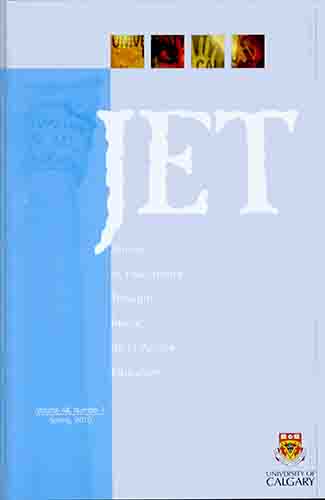Capital, Power, and Habitus: How Does Bourdieu Speak to the Tenure Process in Universities?
DOI:
https://doi.org/10.55016/ojs/jet.v44i1.52267Abstract
This paper uses sociologist Pierre Bourdieu's theory of social structure (1986, 1990a, 1990b, 1991 , 1995, 1998) to better understand the concept of tenure and the relationships that contribute to a conflicted experience for many. Social structures reproduce themselves according to the rules of the field, and various forms of social, cultural, and symbolic capital, underlined by economic capital. are traded by individuals who each have a sense of their value in the system, or habitus. Aspects of the tenure process reflect the rules of the field of academia, excluding those academics (Bonner, 2004; Connell & Savage, 2001). The process of tenure is subjective and can exclude those who are most worthy (Batterbury, 2008; Benton, 2007). A glut of professors can reinforce the status quo and challenge it (Bourdieu, 1988) . Recommendations are made to improve the inherent biases and conflicts within the process.
Downloads
Published
Issue
Section
License
The Journal of Educational Thought retains first publication rights for all articles. The Journal grants reproduction rights for noncommercial educational purposes with the provision that full acknowledgement of the work’s source be noted on each copy. The Journal will redirect to the appropriate authors any inquiries for further commercial publication of individual articles. All authors wishing to publish in JET will be asked to fill in and sign a Consent to Publish and Transfer of Copyright agreement.
Authors must affirm that any submission to JET has not been and will not be published or submitted elsewhere while under considration by JET.

